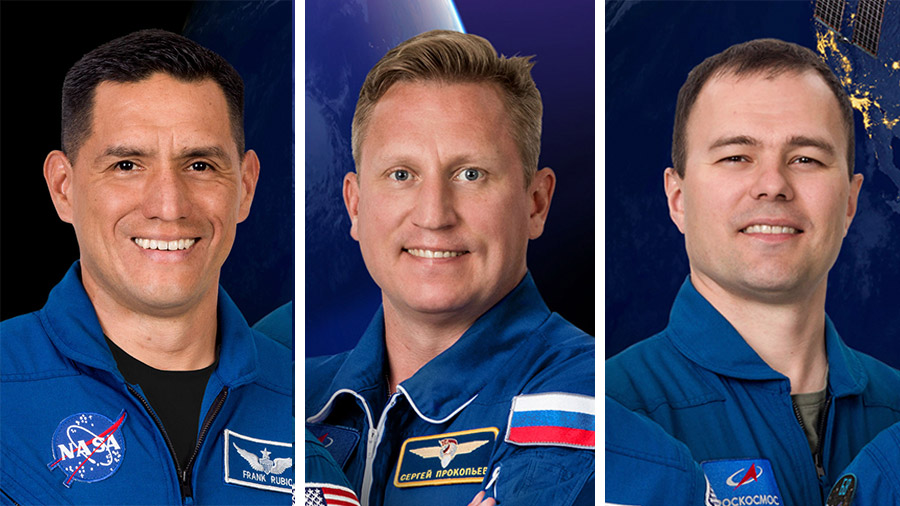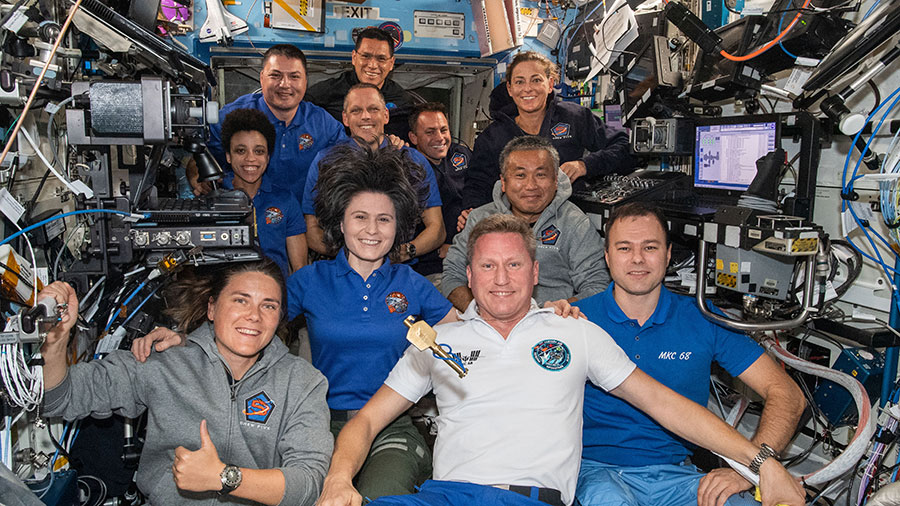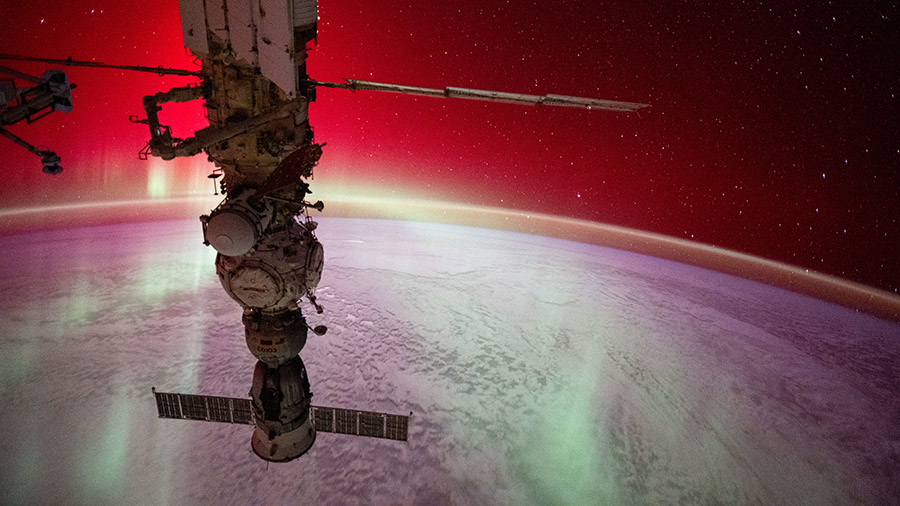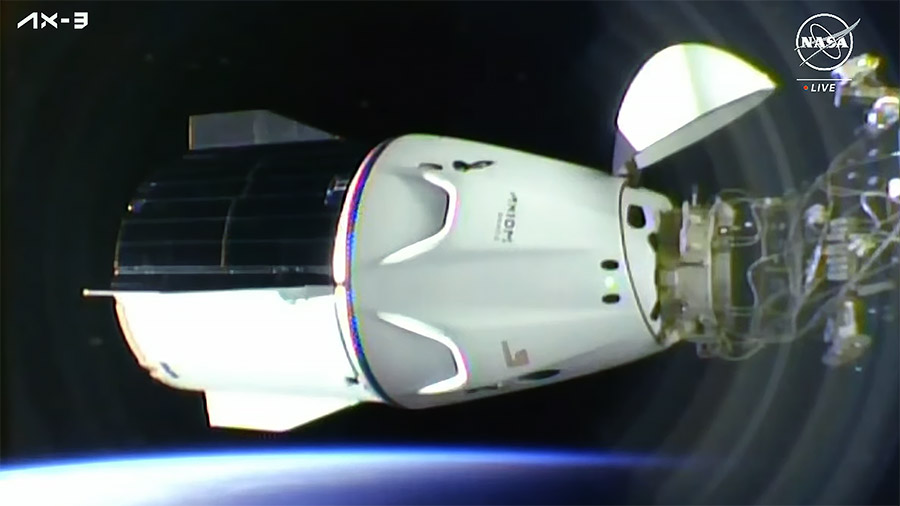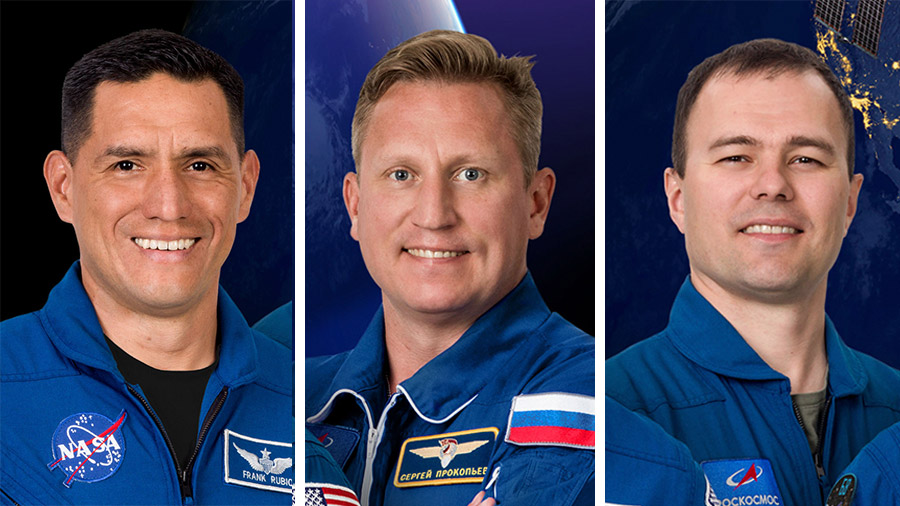
Three Expedition 69 crew members had a short day on Wednesday and went to sleep early ahead of the relocation of their Soyuz crew ship on Thursday morning. The rest of the International Space Station crew had its hands full throughout the day conducting biology research and packing a cargo craft.
Two Roscosmos cosmonauts and a NASA astronaut will take a short ride around the space station inside the Soyuz MS-23 crew ship relocating it from the Poisk module to the Prichal docking module early Thursday. Commander Sergey Prokopyev will guide the MS-23 to its new docking port flanked by flight engineers Dmitri Petelin and Frank Rubio. The relocation opens up Poisk’s airlock for future Roscosmos spacewalks in Orlan spacesuits and frees its docking port for the upcoming ISS Progress 84 resupply mission.
The Soyuz vehicle with the three crewmates will undock from Poisk’s space-facing port at 4:45 a.m. EDT on Thursday, maneuver behind and under the space station, then dock to Prichal’s Earth-facing port at 5:23 a.m. After leak and pressure checks are performed, the trio will reenter the orbiting lab, and go to bed early before continuing their space research mission on Friday. NASA TV, on the agency’s app and website, begins its live coverage at 4:15 a.m. on Thursday.
A U.S. space freighter is being packed with cargo ahead of its departure and return to Earth later this month. Rubio and Flight Engineer Sultan Alneyadi of UAE (United Arab Emirates) have begun loading the SpaceX Dragon cargo craft with completed science experiments and used station hardware for retrieval and analysis by scientists and engineers on the ground. Dragon docked to the orbiting lab on March 16 packed with 6,200 pounds of research gear, crew supplies, and other cargo to replenish the station crew.
NASA Flight Engineers Stephen Bowen and Woody Hoburg spent their day on biology research to understand how the human body changes in space. Hundreds of investigations have taken place aboard the orbital outpost since Expedition One to gain increasing knowledge about how humans adapt to long-term weightlessness and learn more effective ways to counteract space-caused symptoms.
Roscosmos Flight Engineer Andrey Fedyaev participated in a pair of heart studies and a crew behavior experiment on Wednesday. The first-time space flyer first completed a 24-hour session that monitored his heart activity and blood pressure. Afterward, he attached sensors to himself for another study observing his blood circulation. In the afternoon, Fedyaev submitted his answers to a questionnaire to learn how international crews and mission controllers from around the world communicate. Fedyaev will also be up early on Thursday assisting and monitoring his crewmates during their Soyuz relocation maneuver.
Learn more about station activities by following the space station blog, @space_station and @ISS_Research on Twitter, as well as the ISS Facebook and ISS Instagram accounts.
Get weekly video highlights at: https://roundupreads.jsc.nasa.gov/videupdate/
Get the latest from NASA delivered every week. Subscribe here: www.nasa.gov/subscribe

